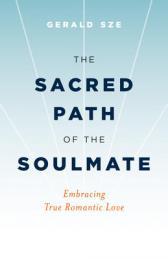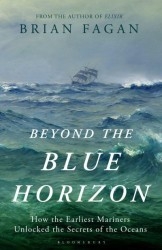
The Wayfinders: Why Ancient Wisdom Matters in the Modern World
Wade Davis’s remarkable book,The Wayfinders: Why Ancient Wisdom Matters in the Modern World, is meant, in part, to debunk the antiquated theories of European anthropologists that turned their science into an agent of control over different peoples. Although such theories may seem like relics of Europe’s imperial past, Davis fears their ongoing resonance. Should we not simply allow the accelerated loss of languages that is occurring today? Is this not incontrovertible proof that more dominant cultures are in fact superior to those threatened with extinction? The answer to both questions is an emphatic no, according to Davis. On the contrary, there is much wisdom in ancient cultures.And although Davis celebrates the West’s capacity for science and technological advancement, he also insists that the culture is rooted in a world view that ultimately remains unsustainable. Climate change and all of its fearsome implications are the latest and most dire proof of this unsustainability. The lessons we must learn if humanity is to survive and thrive – that the world’s resources are not infinitely renewable, that the atmospheric conditions that make life possible are held in a delicate balance – were often better understood by ancient cultures.Davis’s book begins with a nod to the past and ends with a sombre but ultimately hopeful nod to the future.
His analysis and prose exude a deep respect for the ancient cultures to which he refers. Some critics will contend that the respect too often runs perilously close to romanticizing the cultures he is describing. There is indeed a romantic undertone to Davis’s writing. He is enthralled by the connections he uncovers between ancient cultures and the wind, the sun and sky and the sea. One senses that Davis feels more at home sailing the Pacific on a giant catamaran than he would, for example, in a big city. Yet this is what enriches both his analysis and prose. The romance, one feels, is what allows him to travel to the heart of ancient cultures and in so doing, uncover many of their brilliant achievements.Their brilliance exposes the lie that such cultures were inherently inferior to that of our own.
Davis’s immersion in Polynesian culture is a case in point. In the 16th century, Spanish sailors could not fathom how the Polynesian cultures they encountered managed to populate multiple islands in the Pacific Ocean, separated by thousands of miles. Their disbelief was rooted in a misunderstanding of equatorial wind patterns, which were predominantly easterly. Easterly winds would have made any attempt to travel to distant islands effectively impossible. The Spaniards, moreover, possessed all the modern tools of navigation, the peoples the Spanish encountered did not. If the Spaniards couldn’t navigate from point A to point B even with the aid of sextants, it was by definition impossible for the Polynesians to have done so.
As Davis demonstrates, however, equatorial winds were not always easterly. On an annual basis, the winds reversed direction and became westerly, thereby making travel possible. This was hardly an astounding insight, even at the time of Spain’s initial encounter with the Polynesians. What was astounding was the Polynesian capacity for navigation. All of the elements – the sea, the stars, clouds, the wind, birds and marine life – contributed to a remarkably subtle and complex navigational system. The shape and colour of clouds combined with their place in the sky were illuminating details for the navigator. Brown clouds foreshadowed strong winds; higher clouds suggested the likelihood of rain. Frigate bird flight patterns helped to determine proximity to land. Constellations were maps stored in the mind. Individual stars were used as reference points. Different weather patterns were discerned based on water waves. As Davis remarks, most remarkable of all, was their ability to simultaneously integrate all of these elements into a system of knowledge that made voyages of discovery possible. A writer of lesser skill may indeed appear to be peddling nostalgia in celebrating an ancient system of navigation that did not require modern technology. In Davis’s hands, by contrast, the celebration seems entirely worthy. For the Polynesian capacity for navigation remains a remarkable cultural achievement.
For Davis, the lessons of the Polynesians (and the Waorani and Canada’s First Nations) are clear. There are alternative ways of understanding and approaching the world to that of our own. To privilege one approach at the expense of all others is a form of cultural arrogance we can do without. Thus one challenge for secular democratic societies is to meaningfully draw on a pool of knowledge that is more global in scope. This, however, is no easy task. For culture and forms of knowledge are not easily separated. And absent from the many cultures Davis explores are those ideas that form the basis of a liberal, secular society. How, for example, can the forms of knowledge Davis celebrates be incorporated into societies in which the market remains the most important mechanism of change and science remains the lens through which we attempt to understand and change our world? Like many great books, The Wayfinders stimulates many questions for which there are no easy answers.













